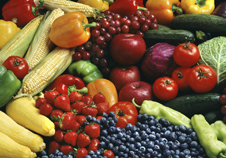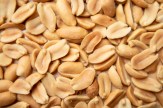3Qs: Tips to maintain a healthy diet

As students return to campus, the less-structured living environment can present challenges to maintaining healthy eating habits, We asked Sabrina Noel Feldeisen, a registered dietician and research assistant professor in the Bouvé College of Health Sciences, to offer tips for students to make healthy food choices as the academic year begins.
Why does it become harder for teenagers to stay on track nutritionally when they enter college?
One of the main factors that influences eating behaviors of college students is that they are now living on their own and are able to make their own food choices. Most students are faced with eating at campus dining halls, which offer a large variety of foods and beverages and are often all you-can-eat. This can lead to increased consumption and portion sizes of foods and beverages in excess of energy requirements. In addition to dining halls, food courts and fast-food restaurants on and off campus offer foods that are highly processed and high in sodium, saturated fat and sugar. Also, changes in daily schedules and routines due to classes, studying and socializing can influence when, or even if, students eat. This lack of scheduled eating, along with late night studying, can also lead to increased snacking. Other factors, such as stress, can also lead to overeating, especially of foods that are sweet, salty or high in saturated fats.
What are the health risks associated with changes in diet and sudden weight gain?
One of the main concerns with weight gain is that this trend will continue through adulthood, leading to overweight and obesity. Individuals who are overweight or obese, or are carrying excess body fat, are more likely to have high blood pressure, elevated cholesterol and other health conditions such as Type 2 Diabetes, heart disease, stroke and even some forms of cancer.
What advice can you offer freshmen and other students to help make better food choices?
Here are a few tips:
• Choose fruits, vegetables, whole grain foods and low-fat dairy products
• Pay attention to portion size and the number of times you go back for seconds
• Plan ahead, so that you have time for regular meals or have a healthy snack on hand
• Avoid fast foods that are highly processed, and high in solid fats and sugar
• Avoid sugary beverages such as soda; instead choose water or flavor-infused water
• Choose a healthy snack, such as fruit, low-fat yogurt or nuts
• Try to incorporate physical activity into your daily routines




